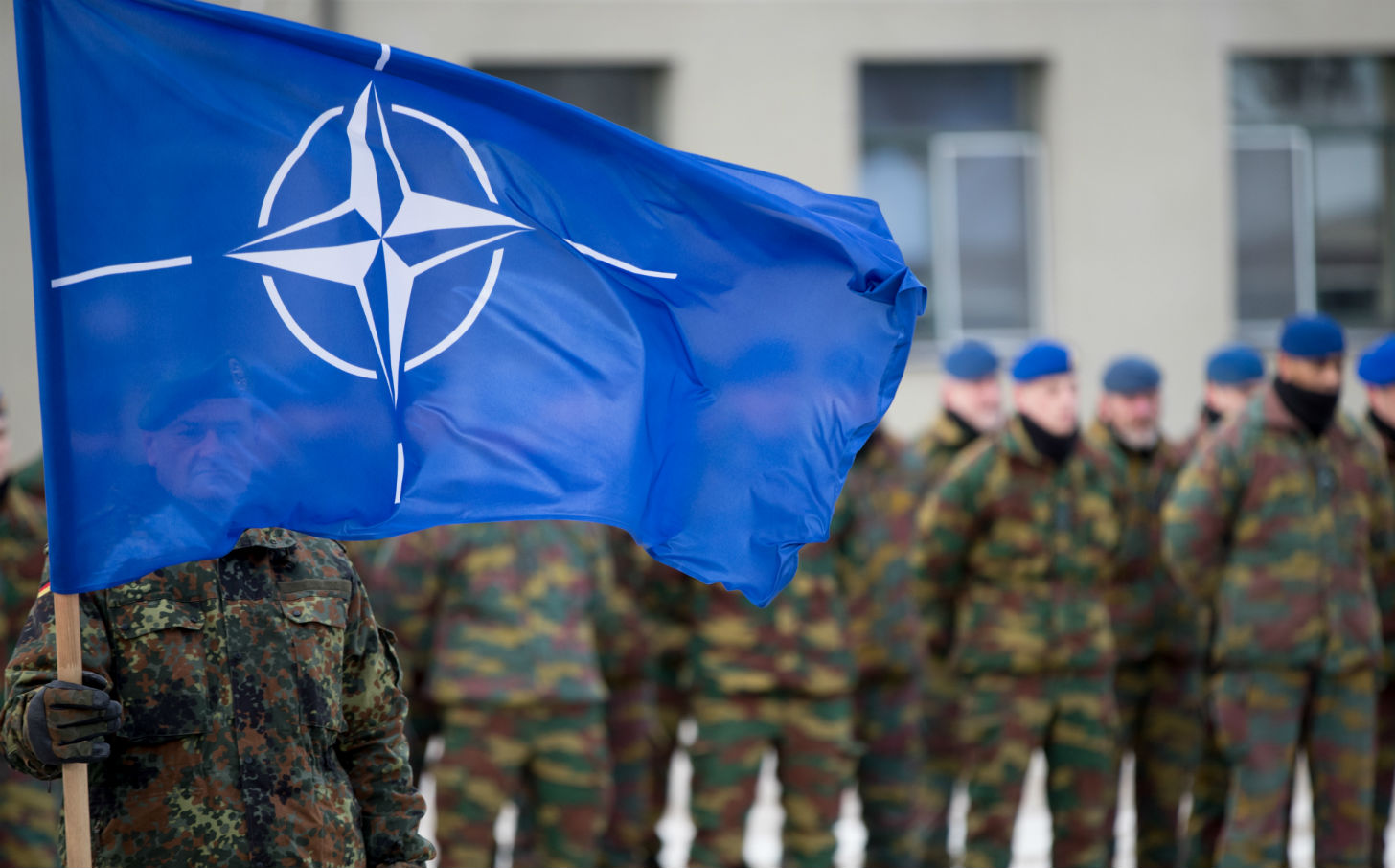Russia’s Deputy Minister of Internal Affairs Alexander Grushko said that Russia has halted all military and civilian collaboration with the North Atlantic Treaty Organization (NATO) due to what he claims is a constant trend of ratcheting up tensions with Moscow.
“NATO itself has abandoned a positive agenda in relations with Russia,” RIA Novosti quoted Grushko as saying in an interview on April 15.
“It [a positive agenda] does not exist. And so far there are no signs that NATO knows how to get out of this deadlock,” the deputy minister said, questioning the 29-member alliance’s decision to terminate working military contacts with Russia.
NATO-Russia relations deteriorated in the last few years, following NATO’s assertion that Russia intervened militarily in Ukraine in February 2014 and the annexation of the Crimean peninsula weeks later. Russia’s actions in Eastern Europe have put NATO on edge, concerned that Moscow’s military ambitions could extend beyond what was a part of the former Soviet Union. On the other hand, the Russian government is concerned about NATO reinforcement of forces and activities near Russia’s western borders, including in the Baltic states.
Grushko believe NATO is being confrontational with Russia, and cited total military spending by NATO countries, which surpassed one trillion dollars last year – more than 22 times Russia’s military budget.
“With regard to the armed conflict with NATO, all sensible ones hope that this will not happen,” Grushko said. “It would be a disaster for all of humanity. I am sure that this is understood both in Washington and Brussels.”
Despite his misgivings about NATO, Grushko still thinks dialogue and practical cooperation.
“Such an attempt was made at the Lisbon Russia-NATO summit in 2010. However, in fact, NATO members would have to sacrifice their ‘exclusivity’, discover the art of compromise and work on an equal footing, focus not on group, but on common interests. That did not happen,” he said.
Over recent years, Russia has faced with the strengthening of the advanced NATO military presence near the borders of Russia. Nevertheless, the Kremlin repeatedly claimed that although Moscow does not pose a threat to other countries, Russia will have to take counter-measures against those nations who act against Russia’s interests.
“There are no longer any positive points in the rhetoric of the alliance, but only a negative agenda related to the myth of the notorious ‘Russian threat’,” said Sergey Ermakov from the Russian Institute for Strategic Studies, according to RIA Novosti.
“In this regard, more and more frightening members of the alliance reports, speeches, statements of former and current NATO, American commanders appear, who say that the alliance needs to continue the ‘deterrence policy,’ and in fact – countering the Russian Federation.”
In 2017, the European Parliament released an in-depth analysis titled, “Russia’s national security strategy and military doctrine and their implications for the EU” that calls Moscow, “a key strategic challenge” for the European Union. In addition, last year NATO members accused Russia of violating the Intermediate-Range Nuclear Forces Treaty, a major arms control agreement signed between the U.S. and the Soviet Union in the 1980s that was considered a guarantor of European security – but routinely violated by Russia today, according to the Trump administration.
Earlier this year the Trump administration pulled the U.S. out from the agreement, and Russian President Vladimir Putin suspended Russia’s compliance with the treaty in response.







 Azerbaijan and Armenia started the process of demarcation of their border on Tuesday, with the installation of the first border markers based on ge...
Azerbaijan and Armenia started the process of demarcation of their border on Tuesday, with the installation of the first border markers based on ge...
 Armenian sappers commenced on Monday mine-clearance operations in the territories adjacent to the Saint Mary Church in village of Voskepar (Armenia...
Armenian sappers commenced on Monday mine-clearance operations in the territories adjacent to the Saint Mary Church in village of Voskepar (Armenia...
 Iran has refuted reports of alleged damage to Shimon Peres Negev Nuclear Research Centre located southeast of Dimona, Israel, during the recent air...
Iran has refuted reports of alleged damage to Shimon Peres Negev Nuclear Research Centre located southeast of Dimona, Israel, during the recent air...
 Iran and Pakistan have signed eight cooperation documents in various fields, and agreed to strengthen ties to fight terrorism in the region.
Iran and Pakistan have signed eight cooperation documents in various fields, and agreed to strengthen ties to fight terrorism in the region.



